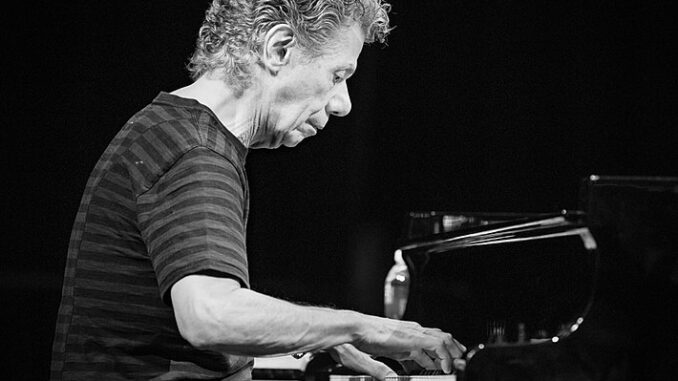
Emma Polen
staff writer
2/25/21

Feb. 9 was a sad day for the jazz community with the death of Chick Corea, 79, a phenomenal jazz pianist and composer of the modern age.
On Feb. 19, Duquesne music school professor Thomas Wendt hosted a jazz listening session centered around Corea’s early career. Wendt honored Corea by playing several records that encapsulated the different techniques Corea used throughout his career.
Two tunes really stood out from the Zoom listening session. The first was “Ritmo Bobo” from “Stitt Goes Latin.” It featured some amazing latin auxiliary percussion parts as well as Corea’s early piano solos. The tune was recorded in 1963, before Corea had records under his own name, proving that Corea was a talented musician.
The second tune was recorded under Corea’s name, titled “Trio with Flute, Bassoon, and Piano.” While the name might sound unmemorable, the piece has a very unique sound. Corea has influence from both classical and jazz roots, and both were evident in this short work recorded in 1969. “Trio” sounded like something that would play behind an animated short film. The melody alone tells a story, even with just three instruments. Someone else must have had the same idea, because the piece appears in the short film “A Picasso on the Beach,” a 1988 animated short film by Greg Neri.
“Ritmo Bobo” and “Trio” are different in so many ways, but they are both great examples of how Corea’s work is both timeless and versatile. Most great musicians lose their telltale “edge” by the end of their lives, but Corea had a highly successful career almost until the very day he died.
Corea’s father was a musician; he was introduced to music at a very early age. He started out taking classical lessons on piano, and soon no one could deny he had talent. Corea’s early successes came as a large part of his motivation to practice on his own.
For his college education, Corea studied music at Columbia University and then transferred to Julliard. However, neither school satisfied Corea and he gave up on the college experience.
Instead, starting in the 60s he toured in New York City with talented players who apprenticed young Corea and influenced the incredible musician he became. Some of the great names he played alongside included Willie Bobo, Miles Davis and Stan Getz.
Corea was unique for his ability to remain flexible among different genres of music. He was also uniquely situated at a turning point in keyboard history. In the many years of being a pianist, he played a role in developing the modern electric keyboard.
Rather than staying solely dependent on traditional methods as other jazz pianists chose to do, Corea changed with the times and proved to be a master of all eras of jazz.
Even over the 2020 quarantine, he actively performed, composed and taught. Emiliano Siegert Wilkinson, a freshman music student at Duquesne, recalls that Corea was “sharing amazing lessons in writing and improvising on his Youtube and social media, and I think that says a lot about the amazing, loving man he was.”
Wendt is not the only one here at Duquesne who is a fan of the musician. Corea’s accomplishments continue to inspire young musicians in the Duquesne music program.
Jake McCormick, a senior music education major, admires how Corea “truly dedicated his life to the mastery of the music and toward helping others achieve that mastery.”
“Chick’s attitude and generosity have had a large impact on me and my playing,” McCormick said.
Freshman music student Emiliano Siegert-Wilkinson mentions that as a bass player, he appreciates the world-class bassists that Corea played alongside including Stanley Clarke, John Pattuci and Christiand McBride.
“As a composer, his music, melodies and willingness to use whatever instrument to get the timbre [that] fits the song best, are forever inspiring,” Siegert-Wilkinson said.
Both McCormick and Siegert-Wilkinson remember “Spain” being one of the first Corea songs they heard that got them hooked on his music.
“The excitement and energy that he conveyed through that recording and many other recordings motivated me to learn more about him and incorporate that same energy into my own playing,” McCormick said.
Anyone who has not heard the song should definitely give it a listen. It is another popular hit by Chick that showcases the musician’s ability to engage many different musical audiences, which Wendt said he recognized as well.
“Chick’s career is long and musically varied. There’s something for almost everyone. If you hear some of his music and you don’t really like it, be sure to check out more of it, as you’ll probably find something that resonated with you,” Wendt said.
Corea will always be remembered as a unique and powerful force in the world of jazz, and for an exceptionally long time, too. From his first recording in 1966 until early 2021, it is evident that Corea fully invested himself in both his piano-playing and compositions.



